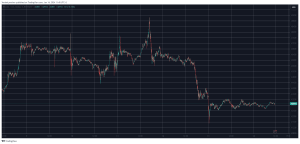Lightning Network in Latin America is moving very quickly, not just in El Salvador.
The case of El Salvador
Although El Salvador’s LN is now widely used, thanks to the state app Chivo and the fact that Bitcoin is legal tender, the small Central American state has only 6.5 million inhabitants out of the 640 million in Latin America.
From the moment El Salvador declared Bitcoin as legal tender, there was immediately a significant increase in Lightning Network adoption for Bitcoin payments in the rest of Latin America and similar emerging markets as well.
The point is that thanks to LN, it is possible to send money remittances from abroad and receive them at home extremely quickly and cheaply, unlike classic systems that are slower and more expensive. The success of LN in El Salvador is mainly due to this, in addition to the fact that it makes BTC easily spendable wherever they are accepted.
In addition, there is another commonality.
El Salvador wants to create a government bond law and license the well-known crypto exchange Bitfinex to issue tokenized bonds. The goal is to finance the creation of the local Bitcoin City, where residents will pay no taxes on capital gains, income, property or wages.
Underlying the project is the idea of leveraging Bitcoin to trigger economic as well as financial progress, for example through mining.

Latin American countries that will use Lightning Network
In this, Latin America really seems intent on following the example of El Salvador, i.e. using natural resources (such as geothermal energy) to fuel Bitcoin mining farms.
In addition to El Salvador, another Central American country, Costa Rica, and a South American country, Paraguay, seem to be moving in this direction.
These projects also have in common the goal of exploiting clean energy sources, given that energy consumption is high and unfortunately in some other nations uses polluting sources.
In such a context, Lightning Network could bring financial inclusion and freedom to these emerging countries, in part because it is trusted and private, without the need to involve third parties or intermediaries. It could also reduce the risk of governments imposing policies that could restrict the freedom of capital movement. It also helps the population that does not have access to bank accounts by facilitating transactions (almost instantaneous and free of charge) thus making Bitcoin usable also as a means of payment.
The post Lightning Network is spreading fast in Latin America appeared first on The Cryptonomist.























